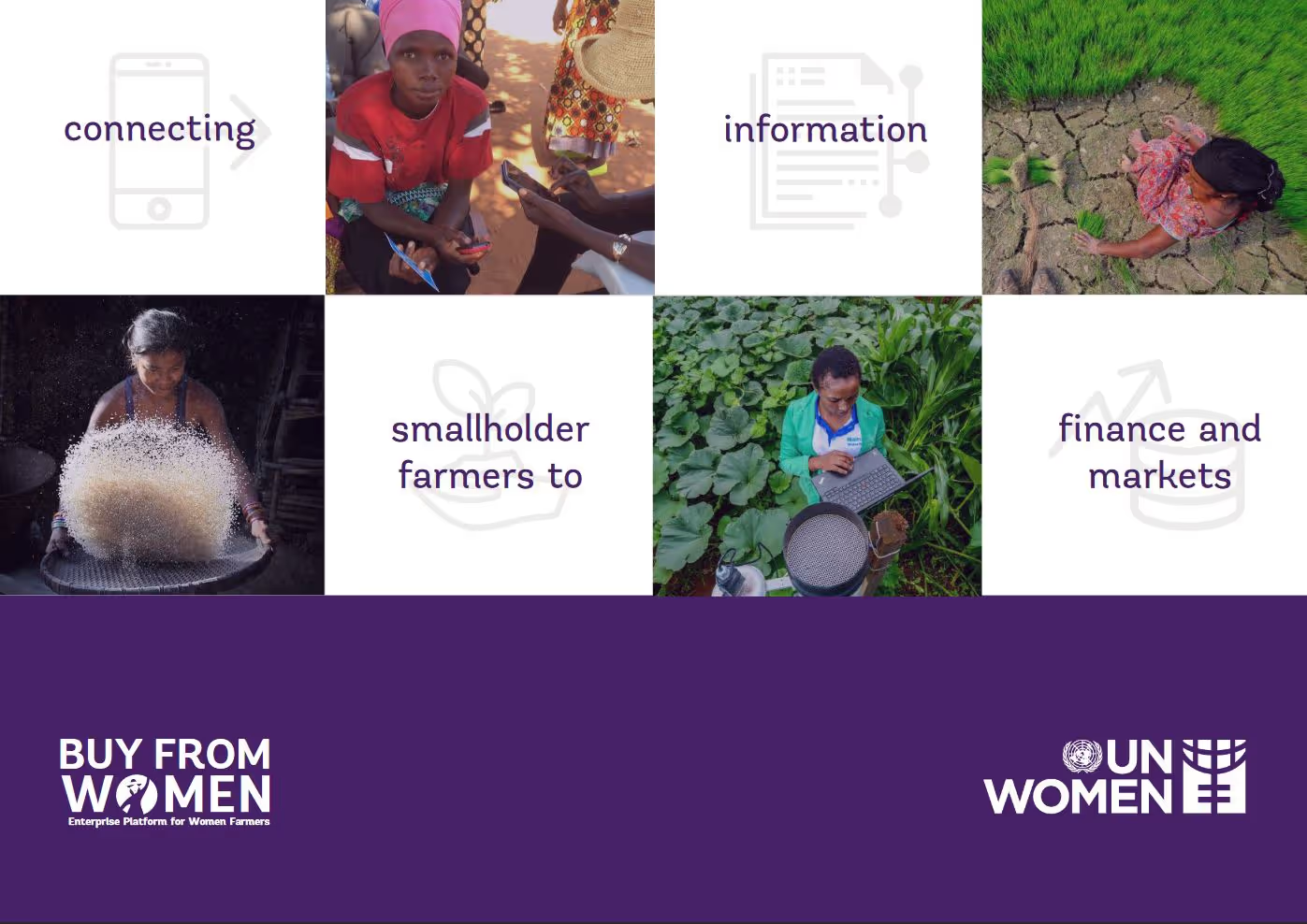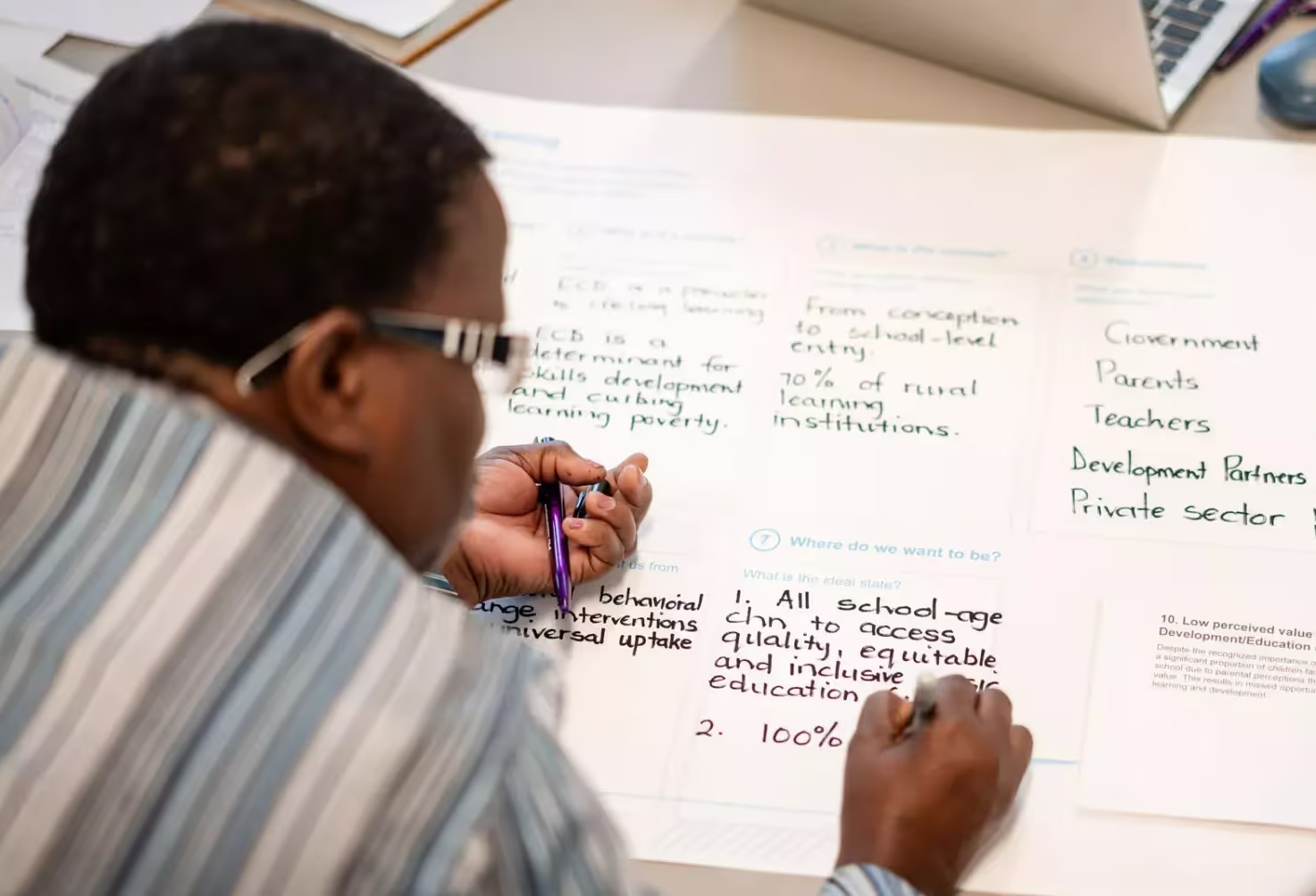Buy from Women

UN Women is piloting the Buy from Women (BfW) platform under the Global Flagship Programme on Climate Smart Agriculture, to provide easier access to land, information, markets and finance for women farmers.The platform plays a dual role: it allows women to access pertinent information (prices, inputs, financing) while helping them establish themselves as legitimate commercial entities with records (land/yields, track record of investments/repayments) to secure their financial future or access new markets. Most available market platforms are developed based on the needs of buyers or companies that need to track their suppliers. But the design of Buy from Women is directly based on women farmers’ needs. It uses an open source Enter-prise Resource Planning system developed for the farmers, covering multiple functions, and flexible to integrate third party apps. Pilots are based on value-chain-specific analysis to make sure their features integrate local needs and context.


.avif)

